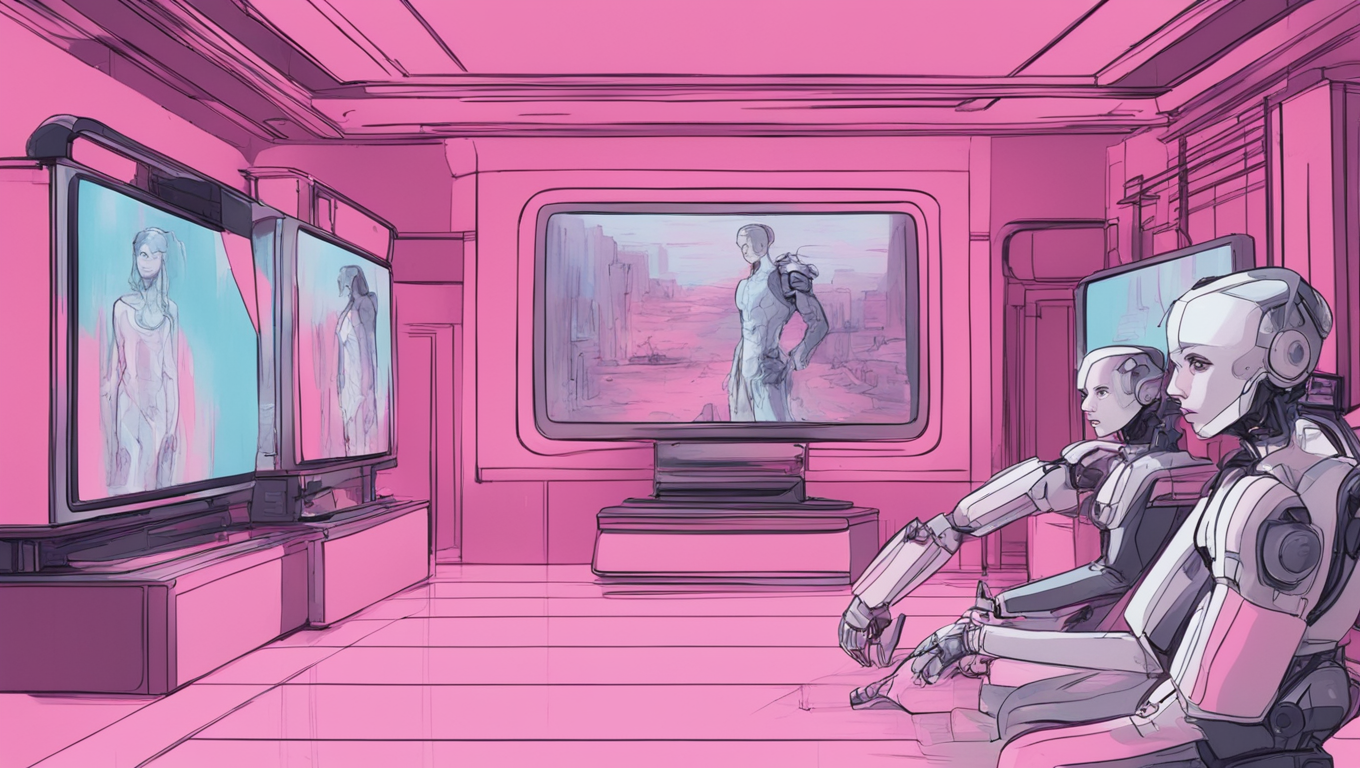TV soaps have always been a staple of entertainment, capturing the hearts and minds of audiences for decades. But what if I told you that these beloved shows could soon be entirely produced by artificial intelligence (AI)? According to James Hawes, a highly respected director, this futuristic vision may become a reality within the next three to five years.
Hawes, known for directing successful productions such as “Slow Horses” and the Anthony Hopkins film “One Life,” recently delved into the world of AI to explore the potential timeline for a show like the BBC1 soap “Doctors” to be fully AI-produced. After consulting with various industry experts, including visual effects specialists and American union lawyers, Hawes determined that the best estimate was three to five years before AI could create a scene set in an ER room, complete with a doctor flirting with a woman while another person lay dying on the operating table.
“It may not be as polished as we’ve been used to, but that’s how close we’re getting, and I found that hard to believe,” stated Hawes. “The genie is out of the bottle, and program-makers will have to adapt to this new reality.”
The impact of AI on the entertainment industry has been a subject of concern for many actors and writers. Last year, there were fears that AI technology could render them obsolete, to the extent that it became a key factor in the US actors and writers strike. Andy Serkis, renowned for his performance as Gollum in the “Lord of the Rings” films, shared his apprehension, stating, “You can put anyone in any situation, saying anything, and that is risky for all of us.”
AI has already made its mark in the industry, with reports suggesting that it played a role in making Harrison Ford appear younger in the recent “Indiana Jones” film. ITV’s “Deep Fake Neighbour Wars” also utilized controversial deep fake technology to transform impressionists into celebrities. As these examples illustrate, AI is already making its presence felt, and its potential to shape the future of television is undeniable.
During a meeting with the UK culture, media, and sport committee, Hawes, who is also the vice-chairman of Directors UK, revealed his findings on the future of AI in TV production. “The best guess is between three to five years, somebody (will) be able to say ‘create a scene in an ER room where a doctor comes in, he’s having an affair with a woman so they’re flirting, and somebody’s dying on the table,’ and it will start to create it and you will build those, and it will be generative AI.” While the outcome may not match the level of polish we are accustomed to, the rapid progress is hard to ignore.
Hawes highlighted the recent launch of Open AI, a program capable of digitally creating scenes that closely resemble live-action footage. He sees tremendous potential in utilizing AI for storytelling in the British television landscape, but he also emphasized the importance of protecting the rights holders involved.
As we edge closer to this new era of AI-generated content, it is crucial to strike a balance between embracing technological advancements and safeguarding the artistic integrity of the industry. While AI may bring unprecedented efficiencies and creative possibilities, it must be guided by human curators to preserve the essence of storytelling that makes television so captivating.
The future of TV soaps may lie in the hands of AI, but the human touch, imagination, and storytelling prowess will always remain at the heart of what captivates audiences worldwide.





Use the share button below if you liked it.